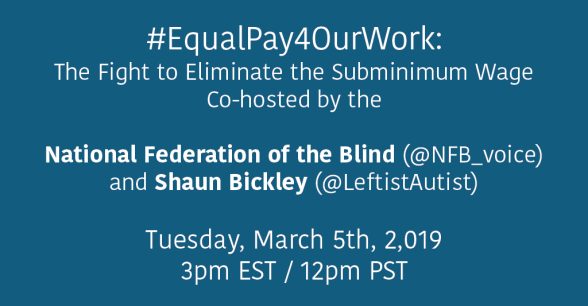My Journey to Rejecting Ableism and Embracing Disability Identity
I wish I could tell you the exact moment I realized that ableism was surrounding me, being directed at me, and I was participating in it by saying nothing. Instead, there were so many little moments and a few big moments – a journey – that finally shook me from my fear, my cowardice, and my shame. Because I was ashamed of myself, I’d been hiding who I am.
Who am I? I’m Susan and I have a disability. I’m also, a wife, a mom to a disabled child, a military spouse, an advocate, and a podcaster. I’m so many things, but what I’m most proud of is being a disabled woman.
It took time to get here. Reflecting on my childhood, there were so many signs that something was going on:
- The kindergarten teacher who told my mom that I couldn’t sit still or pay attention, and I flipped around my letters.
- The fourth-grade teacher that had to find a quiet place in the classroom for me because I couldn’t stop talking to my friends or get my schoolwork done.
- The feeling of helplessness, of wishing my brain was different, and hoping for a reprieve from the chaos that lived inside of me.
Years would continue to go by, and I would feel more and more lost. But I always played the clown, and I kept people laughing. I couldn’t let anyone know how truly frustrated I was. Finally, in seventh-grade, I was tested for disabilities. When the diagnosis came, I felt relief. Finally, something good.
I am dyslexic, and I have ADHD, Auditory Processing Disorder, and anxiety. That’s a lot for a kid, but I was lucky. My mom started advocating and getting me help. I started seeing a therapist who helped with my organization and anxiety. I went on Ritalin, and it worked. I learned when to ask for help.
My teenage years were odd. Being on Ritalin and in high school didn’t seem normal. I never said a word to anyone because I was ashamed and embarrassed. Why wasn’t I like the other kids? I looked like them, but I wasn’t like them.
High school was tough. I never had an IEP or a 504 Plan. We were a military family stationed overseas, and because of that I was ineligible to receive a 504 Plan. I was also denied an IEP by my high school.
Then came the moment when I had to admit that I have a disability in order to make sure I was educated the way I’m supposed to be. I remember the first time I walked into the disability services office. I was scared. I really thought I was going to throw up. But I did it, and I didn’t throw up. It felt amazing.
Still, I was hiding my disability identity. I didn’t see disability advocacy the way it deserved to be seen, the way it deserved to be acknowledged. I didn’t understand because I was never taught. Naively, I thought becoming an advocate was about education. I was getting a minor in special education, so I assumed that disability advocacy was only about special education. I had to be taught, and I had to recognize the ways I had hurt my community.
For instance, I didn’t stop people when they used the “R-word.” I stood by, gripped in fear and shock, and said nothing. I did nothing. I betrayed a community of people because I was silent, because I could be silent.
I should have spoken up, I shouldn’t have let fear control me. I shouldn’t have been ashamed. Because having a disability isn’t shameful. Acknowledging disability isn’t shameful. It’s part of who I am.
So many moments of realization like this woke me up.
- Experiencing comments like, “You’re dyslexic? But you seem so smart!”
- Seeing the meme that claims ADD/ADHD is fake and what really needs to be done is more spanking.
- Recognizing that I do have an invisible disability, and that I have been afforded access to resources that many of my peers may not have.
- Asking questions, instead of making assumptions.
- Being part of a community, and recognizing that everyone who has a disability is a vital component in that community.
I’m still learning, and it’s my hope that my community will continue to be my teacher.
About Rooted In Rights
Rooted in Rights exists to amplify the perspectives of the disability community. Blog posts and storyteller videos that we publish and content we re-share on social media do not necessarily reflect the opinions or values of Rooted in Rights nor indicate an endorsement of a program or service by Rooted in Rights. We respect and aim to reflect the diversity of opinions and experiences of the disability community. Rooted in Rights seeks to highlight discussions, not direct them. Learn more about Rooted In Rights



